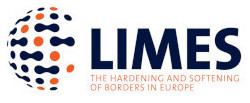Liberal Arts Education in Europe: Making or Breaking Borders
Research Focus and Methodology
Milan’s research explores the relationship between the development of liberal arts education (LAE) in the Netherlands and the world of work, focusing on the career preparedness and employability of Dutch university college graduates. The first article of his dissertation examines how employability develops in university college students compared to their peers from a traditional bachelor’s programme. The second article addresses a common critique of LAE—the notion that its graduates are unprepared for a specialized master’s programme. The third article looks into the employers’ perceptions of LAE and the different kinds of signals that a university college degree might send in the labour market. Finally, the fourth article investigates the labour market outcomes of university college graduates—their employment status, salary, job satisfaction, and related indicators. To gain a comprehensive understanding of the topic, the research employs a variety of methods, both quantitative and qualitative. These include statistical analyses, designing and conducting a survey, as well as interviews with employers.
Relation to Borders
In Milan’s research, borders are understood in a broader sense, figuratively rather than literally, as borders of employability that LAE graduates need to cross when transitioning from higher education to the world of work. The individual papers comprising the dissertation focus on several steps of this border-crossing process: firstly, the career-relevant skills that LAE students learn during their bachelor’s studies; secondly, adapting to and performing well in a specialized master’s programme; thirdly, the challenge of passing the job selection and finding employment; finally, performing well in their jobs.
Findings and Takeaways
Milan’s research yielded several key findings. Firstly, when it comes to the development of career-relevant skills, the gains of LAE students in creativity and personal initiative particularly stand out, reflecting the differences between interdisciplinary and monodisciplinary learning, and self-tailored and fixed curriculum structures. Secondly, despite having less subject-specific knowledge, university college graduates proved to be prepared equally well for specialized master’s studies as their counterparts with a matching disciplinary background. Thirdly, employers seem to be generally unfamiliar with the LAE model, and the signaling effect of a LAE degree in the job selection process is largely neutral. Lastly, in terms of labour market outcomes, holding a university college degree is not associated with any distinct advantages or disadvantages. The only negative result was found in the STEM sector, where holding a LAE degree seems to adversely impact one’s chances of attaining employment. Altogether, this points to the overall conclusion that LAE programmes do not lack the capacity to prepare students for the world of work.
PhD thesis defence date: 11/04/2024
Researcher: Milan Kovacevic (see profile)
Supervisors: Teun Dekker, Rolf van der Velden, Samuel Abraham (see profiles)
